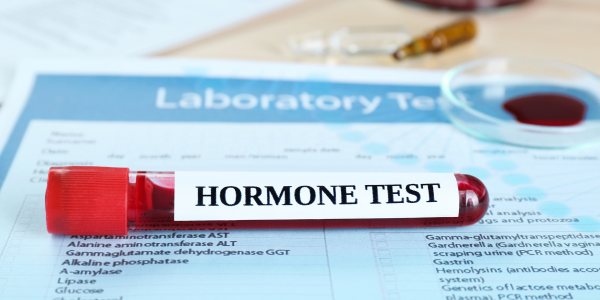

Sometimes you need extra help losing excess weight and getting blood sugars under better control. Maybe you’ve been trying for years or maybe the post-baby weight won’t go away no matter what you do. That’s where weight loss medications like semaglutide or tirzepatide may be able to help.
Many of these medications were traditionally used for type 2 diabetes and are now approved for obesity as well. But after extensive trials, they are now being used off-label for other conditions like prediabetes, sleep apnea, and being overweight.
While GLP-1 agonists, or glucagon-like peptide-1 receptor agonists, have gained popularity in mainstream media as an effective weight loss drug. These medications can do so much more than help manage your weight. Let’s look deeper at the different prescription weight loss drugs available.
Types of GLP-1 Weight Loss Medications
There are a variety of FDA-approved weight loss medications that are safe and effective when taken as prescribed.
Common prescription weight loss drugs include:
- Semaglutide (Ozempic and Wegovy)
- Tirzepatide (Mounjaro and Zepbound)
- Retatrutide
These prescription weight loss drugs work in the body differently and are often characterized by their mechanism of action.
The three different mechanisms of action for these weight loss medications include:
- GLP-1, or glucagon-like peptide-1 receptor agonists
- GIP, or glucose-dependent insulinotropic polypeptide, receptor agonists
- Glucagon receptor agonists
Whether these medications use a single mechanism of action or multiple can further classify them. For example, single action weight loss medications use GLP-1 agonists, such as semaglutide. Dual-action weight loss medications use GLP-1 agonists and GIP receptor agonists, such as tirzepatide. Lastly, tri-peptide triple action weight loss medications use all three mechanisms of action: GLP-1, GIP, and the glucagon receptor agonists. The novel weight loss medication retatrutide is an example of this.
How Do These Weight Loss Medications Work?
Single-Action Weight Loss Medications: GLP-1 Agonists
GLP-1 agonist medications mimic GLP-1, a peptide hormone produced in the GI tract. It stimulates the pancreas to make the right amount of insulin after meals and helps curb appetite by slowing down gastric emptying – so food stays in your stomach longer after eating. This supports healthy blood glucose levels and aids in healthy weight loss.
These medications are usually given once a week as injections under the skin, called subcutaneous injections. They can be given in any area with fat right under the surface of the skin, such as the back of the arms, legs or belly.
Studies show GLP-1 agonist medications are safe and effective at promoting weight loss. Ozempic (semaglutide), resulted in 14.9% loss in body weight over a 68 week trial. This is two times more effective than other weight loss drugs on the market! Total fat mass also decreased while lean body mass increased.
Common single action GLP-1 agonist medications for blood sugar control and weight loss include:
- Dulaglutide (Trulicity)
- Semaglutide (Ozempic and Wegovy)
- Liraglutide (Sexenda and Victoza)
Dual-Action Weight Loss Medications: Tirzepatide
Dual-action medications use GLP-1 agonists and GIP, glucose-dependent insulinotropic polypeptide, to provide even greater benefit weight loss and blood sugar benefit. GIP is a gut hormone naturally released within minutes after eating. Its purpose is to help dispose of ingested nutrients while regulating insulin and glucagon, a hormone made by the pancreas to regulate blood sugar levels. GIP works by binding to a specific receptor which stimulates insulin secretion in a glucose-dependent manner. This improves insulin sensitivity. GIP also influences appetite control, similarly to GLP-1 agonists.
GIP is often combined with other peptides for increased effectiveness – hence the dual-action name. Zepbound (Tirzepatide), an FDA-approved weight loss medication, is an example of this. It is a dual-action weight loss medication with both GLP-1 and GIP properties that increases glucose-dependent insulin production, decreases glucagon secretion when glucose levels are elevated, slows gastric emptying, and reduces appetite. In clinical trials, tirzepatide improved insulin sensitivity and reduced hemoglobin A1C levels, a measurement of blood sugar control. Because of its ability to reduce insulin resistance, tirzepatide provides significant benefits like weight loss, glucose control, and the improvement of metabolic health.
Tirzepatide supports superior glycemic control and improved weight loss effects when compared to GLP-1 weight loss medications alone. One study found that tirzepatide provided even more effective weight loss results in comparison to semaglutide. Similar to GLP-1 medications like semaglutide, dual-action weight loss medications like tirzepatide require regular administration for continued effect.
Tri-Peptide Triple Action Weight Loss Medications: Retatrutide
Tri-peptide triple action weight loss medications work at the GLP-1 agonist receptors, GIP receptors, and glucagon receptor agonists. These medications work similarly to the single and dual-action weight loss medications, with the added benefit of having a glucagon receptor agonist as well.
Glucagon receptor agonists work by mimicking the effects of glucagon in the body. Glucagon is a hormone produced by the pancreas that gets released when blood sugar levels drop. It stimulates the liver to release stored sugar into the blood stream.
These glucagon receptor agonists activate glucagon receptors in the liver and other tissues, increase metabolic rate, promote the breakdown of fat stores, and reduce appetite through central nervous system effects. It is believed that glucagon receptor agonists likely reduce energy intake and increase the body’s energy expenditure, enhancing weight loss benefits. Glucagon receptor agonists work synergistically with the GLP-1 and GIP pathways.
An example of a tri-peptide triple-action weight loss medication is retatrutide. This novel weight loss medication targets all three receptors (GLP-1, GIP, and glucagon receptors) to enhance weight loss and blood sugar control. The safety profile of retatrutide is similar to single or dual-action weight loss medications, with most side effects being gastrointestinal in nature and occurring during dose increases.
Benefits of GLP-1 Weight Loss Medications:
- Reduced waist circumference
- Decreased blood pressure
- Normalized blood sugar levels
- Decrease in C-reactive protein levels, a marker of inflammation
- Improved physical functioning
- Reduced cardiovascular risk, including stroke or heart attack
- Improvement in obesity-related obstructive sleep apnea. Because weight reduction is a common recommendation for patients with obesity-related obstructive sleep apnea, prescription weight loss drugs like tirzepatide can be beneficial.
- Prevention of neurodegeneration
Common Side Effects of GLP-1 Weight Loss Medications
While prescription weight loss drugs like semaglutide and tirzepatide are safe and no significant safety issues have been found with their use, they can come with side effects – especially at higher doses.
Some side effects of weight loss medications include:
- Nausea
- Diarrhea
- Stomach cramps
- Constipation
- Delayed gastric emptying or gastroparesis
- Increased heart rate
The mild gastrointestinal disturbances like nausea and stomach cramps are often associated with higher doses of weight loss medications and might be related to slower gastric emptying. GLP-1 receptor agonists specifically impact the motility of the stomach and the duodenum, while also impacting the contractions of the gastrointestinal system. This causes delayed gastric emptying, so food sits in the stomach longer – giving you the feeling of fullness for longer. But this can also be a problem for some people, leading to gastroparesis.
This is why it’s recommended to start on a lower dose and titrate up from there. It is also important to use the lowest dose possible that still works to control blood sugars and weight. To minimize gastrointestinal effects, it’s helpful to eat smaller meals throughout the day, drink plenty of water, and avoid lying down right after eating and 2 hours before bed to prevent acid reflux symptoms.
While considered safe and approved by the FDA, when initially studied GLP-1 agonist medications showed a possible increase in the risk of other conditions like cholelithiasis or gallstones, pancreatitis, kidney dysfunction, vision changes, and medullary thyroid carcinoma. This is why it is important to have a comprehensive laboratory evaluation and discussion with your healthcare provider prior to starting.
Additional research has also uncovered potential psychiatric risks and side effects associated with weight loss medications, including worsening depression, anxiety, or suicidal ideation. While this appears to be a potential concern with certain weight loss medications, the risk remains unclear and many people with a history of depression or anxiety have not reported any issues while taking weight loss medications. But, as always, it’s important to make your provider aware of any mental health concerns you have before starting a weight loss medication.
Healthy Lifestyle Factors to Support Weight Loss Medications
While weight loss medications can be very effective, pairing them with healthy lifestyle factors is key. Without establishing a healthy lifestyle, weight loss is less likely to stick, especially once weight loss medications are weaned down and/or stopped.
Anti-Inflammatory Diet
A healthy diet is one the best things you can do for your health. Eating a diet rich in high quality well sourced proteins, vegetables, low glycemic fruits like berries, healthy fats, nuts, and seeds should be the primary focus. Avoid processed and packaged foods with empty calories and limit added sugars. Also staying well hydrated is important. This means drinking at least half your body weight in ounces of water per day, more if you are active and/or it is hot out.
Healthy fats to include are monounsaturated fats like olive oil, avocados, and omega-3 fatty acids from cold-water fish, flax seeds, and nuts. Eating this way not only supports a healthy weight, but it also helps prevent cardiovascular disease and diabetes. When combined with weight loss medication, a healthy diet supports sustainable weight loss long-term.
Since appetite will be decreased, it is important to focus on getting enough high-quality protein, healthy fats and veggies in. In addition, making sure there is enough fiber intake is also important for gut health and preventing constipation.
Exercise
Incorporating daily movement is a core pillar of a healthy lifestyle. And since 80% of Americans aren’t active enough, it’s even more important to get up and get moving. Whether it’s walking after work, taking the stairs instead of the elevator, or going to your favorite workout class with a friend, everything adds up.
It’s recommended for adults to do at least 150 minutes of moderate-intensity activities each week. This is in addition to muscle-strengthening activities at least twice a week to build and maintain lean muscle mass.
Exercise is especially important during a period of weight loss because it increases metabolism and helps you retain your muscle mass. This enhances weight loss gains while on prescription weight loss drugs and helps maintain that weight loss long-term. Staying active is a key part in seeing results and maintaining a healthy weight.
Sleep
Sleeping at least 7-8 hours each night is non-negotiable for health. Plus, it can help support weight loss.
Some tips for improving sleep quality include:
- Avoid eating 2-3 hours before bedtime
- Keep a consistent bedtime schedule
- Make sure you’re getting enough magnesium, which increases GABA and promotes relaxation in the body
- Avoid blue light devices like phones, TVs, and computers at least 1 hour before bedtime
Learn even more about getting high-quality sleep here.
Managing Stress
How do you cope with stress? If emotional eating, smoking, drinking alcohol or late night tv binges are your go-to, weight loss will be hard to maintain. Managing stress in a healthy way is really important not only for your overall health but for long-term weight loss.
Some healthy ways to manage stress include:
- Practicing mindfulness through meditation, deep breathing, or guided visualizations
- Yoga or other consistent movement practice
- Getting enough sleep
- Maintaining healthy relationships and social support
So, while weight loss medications can do lots for weight loss, they should be paired with healthy lifestyle habits.
Struggling With Your Weight Loss Journey? You’re Not Alone.
We know how hard it can be to lose weight and get blood sugars under good control. No matter where you are in your weight loss and health journey, Arizona Wellness Medicine is here for you. We know that while weight loss medications can be great options, they aren’t right for everyone. This is why our functional medicine providers offer a comprehensive, personalized approach to sustainable weight loss. We work one-on-one with you to create a wellness plan that improves your health and supports healthy weight loss. Learn more about how we can help you here.
Resources:
- GLP-1 Agonists
- Dual GIP and GLP-1 Receptor Agonist Tirzepatide Improves Beta-cell Function and Insulin Sensitivity in Type 2 Diabetes
- Safety of Semaglutide
- Once-Weekly Semaglutide in Adults with Overweight or Obesity
- Tirzepatide versus Semaglutide Once Weekly in Patients with Type 2 Diabetes
- Diets for Health: Goals and Guidelines
- Stress Management
- Semaglutide vs Tirzepatide for Weight Loss in Adults With Overweight or Obesity
- Medication-Induced Gastroparesis: A Case Report
- Psychiatric adverse events associated with semaglutide, liraglutide and tirzepatide: a pharmacovigilance analysis of individual case safety reports submitted to the EudraVigilance database
- Comparison of tirzepatide and dulaglutide on major adverse cardiovascular events in participants with type 2 diabetes and atherosclerotic cardiovascular disease: SURPASS‐CVOT design and baseline characteristics
- Tirzepatide for the treatment of obstructive sleep apnea: Rationale, design, and sample baseline characteristics of the SURMOUNT -OSA phase 3 trial
- Tirzepatide prevents neurodegeneration through multiple molecular pathways
- Triple–Hormone-Receptor Agonist Retatrutide for Obesity — A Phase 2 Trial
- Biology of Incretins: GLP-1 and GIP
- GIP and GLP‐1, the two incretin hormones: Similarities and differences
- GLP-1, GIP and glucagon receptor poly-agonists: A new era in obesity pharmacotherapy
Share:
Dr. Emily Parke
Social Media
Most Popular Posts
Subscribe To Our Newsletter
Related Posts

New Podcast Episode: My journey into functional medicine + what I’ve learned
I’m excited to share that I recently joined DeLo for Episode 165 of the On the DeLo podcast! In this conversation, we explored my journey

Understanding the Essential Labs for Women on Hormone Replacement Therapy (HRT)
So what are the minimum labs we’re looking at when we do hormone replacement therapy? We obviously want to look at an estrogen level, so

How to figure out the right amount of HRT in women
What about checking lab values when you’re on hormone replacement therapy? I do find it to be helpful, but we also want to consider symptoms.

Did you know there’s a difference between food allergies, sensitivities, and intolerances?
Did you know that there’s a difference between food allergies, food sensitivities and food intolerances? Food allergies, the reactions tend to happen pretty immediately and
